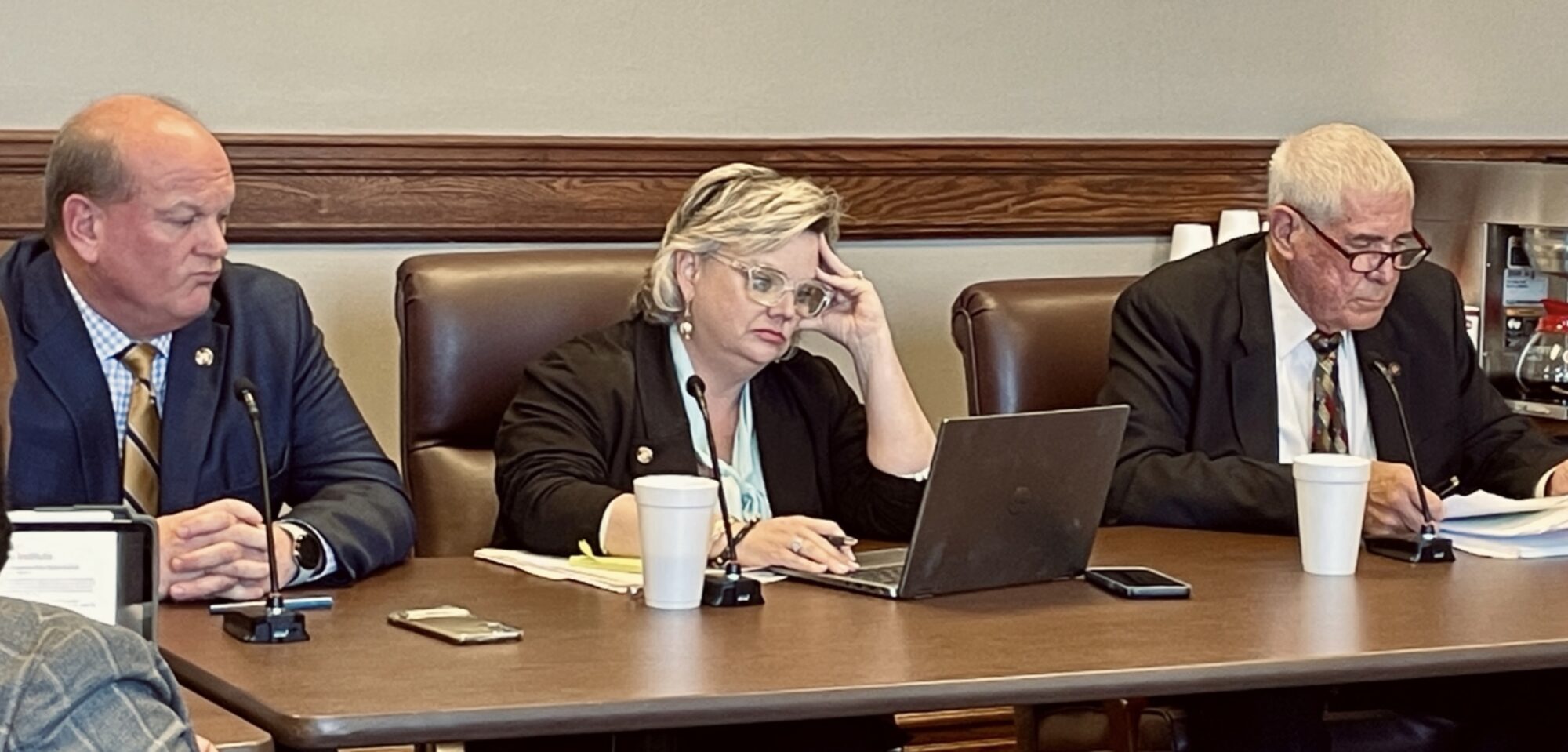
Attorney General Lynn Fitch says the ultimate protection for teens and adolescents online starts at home.
Modern day American kids are tethered at the hip to internet usage today, specifically usage of social media. A recent Pew Research Center Study highlighted that nearly all teens in their survey pool claimed to have access to a smartphone, up from 73% in 2014. The study also highlighted that while teens are getting away from Facebook, use of TikTok, Snapchat, and Instagram are up.
DoSomething.org reported that 37% of teens claimed to have been bullied online, 60% of teens have seen online bullying but have not intervened, and only one in 10 victims will talk to a parent or loved one. Most of the time, that bullying is between teens within the same age range.
Cyberbullying is only one of the threats that teens and adolescents face online. Online sex crimes towards children, such as child pornography and sex solicitation, are on the rise as well. The Mississippi Attorney General’s Office leads the state’s Internet Crimes Against Children (I.C.A.C) Task Force. More than 80 law enforcement officers in Mississippi make up this task force. Even with this task force in place, Attorney General Lynn Fitch said that the ultimate protection starts at home.
Cyberbullying
One of the leading risks against children and teens on social media is the presence of cyberbullying. Statistics show that less than ten percent of kids online will share with their parents what they’ve actually seen or experienced, so it is important to know what cyberbullying looks like.
DoSomething.Org listed several examples, such as: posting screenshots of messages that were thought to be private, tagging someone in a post unrelated to them in order to insult them, adding mean hashtags under photos, hurtful gossip, impersonating someone online, and more.
Attorney General Fitch said there are ways to address these situations that are occurring online.
“The best way to protect your children online is to establish and maintain communication,” said Fitch. “We encourage parents to explore the Internet together as a family. Start a conversation with your kids, ask them what apps they use and work through and explore the privacy and reporting functions together.”

Fitch said it is especially important to address cyberbullying and create a plan with children on what they should do if they witness or experience bullying themselves.
“Remind them to keep all personal and private information offline,” she implored.
The Attorney General added that as social media has grown in popularity, so has the ability for parents to monitor their child’s online activity.
“Many social media platforms allow parents to use parental control apps to monitor their children’s content, and we strongly urge parents to take advantage of and use these options,” said Fitch. “There are also parental control apps that will alert parents or schools when a dangerous or harmful message is posted or sent. Apps can also alert parents if their child, for example, has demonstrated a desire for self-harm or suicide.”
Even with the presence of all of these safety features, Fitch said that time, conversations, and attention should be added to a parent’s toolbox when it comes to caring for their child.
If a parent is not currently monitoring their child’s online activity, here are a few signs that he or she may be bullied, according to KidsHealth.Org:
- avoiding school or group gatherings
- slipping grades and “acting out” in anger at home
- changes in mood, behavior, sleep, or appetite
- suddenly wanting to stop using the computer or device
- being nervous or jumpy when getting a message, text, or email
- avoiding discussions about computer or phone activities
If bullying is suspected, parents should open communication between their child, the parents of the child involved, the school and, if needed, law enforcement. Offer support and care for your child and walk them through how to block their offender online. Keep records of the offending messages and consider seeking the services of a therapist to help your child move beyond the bullying and abuse.
Online Sex Crimes Against Children
Predators often use the internet to target, groom, and sexually harass or exploit children and teens. It is almost scary how easy it can happen– a person poses as someone that can be trusted online. They build a rapport with your child, they establish trust, and then they request pictures of a sexual nature or a meetup. Often, a child or teen may be embarrassed that this is happening, or may not even understand that it is wrong, and may not tell their parents.
“We have all warned our children never to get into a car with a stranger, we need to share the same warning about meeting “online friends” in person,” said Attorney General Fitch. “But you don’t have to meet a person in order for a crime to take place. Images posted online will remain on the internet permanently. Make sure your child knows that anyone who asks a child to engage in sexually explicit activity should be reported to a trusted adult and local law enforcement.”
If a child or teen is groomed to trust someone online and sends sexually explicit pictures of themselves to someone or agrees to meet, it can lead to emotional damage at the least and sexual assault, kidnapping, and/or human trafficking. This isn’t just something you see on television. Sex crimes against children online are happening in the Magnolia State, and it is a growing crime.
“In 2022, the (Mississippi) I.C.A.C. Task Force received 3,047 CyberTips, resulting in 75 arrests and 35 convictions. As of February 14th, the Task Force has already received 499 tips in 2023,” said Fitch. “My office is involved from the moment we hear about it. We receive tips sent to the CyberTipline. Also, local law enforcement partners and schools often share information, and we investigate reports made by concerned citizens.”
What can be done?
If you see or experience criminal behavior, report it to the CyberTipline at www.cybertipline.org or 800-843-5678, as well as law enforcement.
“The CyberTipline is run by the National Center for Missing and Exploited Children, another AGO partner, and those tips come directly to our office,” said Fitch.
Be proactive. Start regular conversations with your child about online behaviors and safety. Download apps to help monitor their online usage.
For help starting the conversation with your kids, visit www.missingkids.org/netsmartz.











